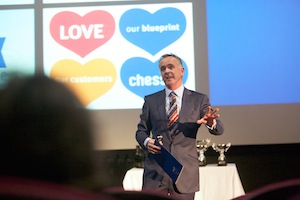Adaptive Planning, specialist in cloud-based business analytics solutions, announced during its recent Worldwide Partner Summit a global expansion and rising revenue driven by its channel partners.
The company says its channel programme proved to be significant in its continued growth, especially in midmarket and enterprise sectors. In 2013, it saw a 100% year-on-year growth in the number of partners elevated to Gold status, based on revenue generation.
Adaptive also welcomed new partners into its channel programme, such as global SI providers Cap Gemini and Cognizant Technology Solutions.
Altogether in 2013 the company's 20 highest performing partners grew their sales by a combined average of 37%, it says. And the company's number of Platinum status partners grew by 17% year over year globally.
"Partners are the lifeblood of our global successs receive critical product information at the same time as our sales force. We look forward to an even stronger 2014 as we further strengthen our partnerships, both large and small," said Carolee Gearheart, vice president, Global Channels and Partners, Adaptive Planning.

 GCI Channel Solutions has launched a new channel-only portal which enables resellers to quote, order, provision and support cloud products from a single control panel. In the first phase of development the portal will facilitate Hosted Lync and Hosted Exchange with additional products such as Ethernet, broadband and virtual desktops coming out of the pipeline soon.
GCI Channel Solutions has launched a new channel-only portal which enables resellers to quote, order, provision and support cloud products from a single control panel. In the first phase of development the portal will facilitate Hosted Lync and Hosted Exchange with additional products such as Ethernet, broadband and virtual desktops coming out of the pipeline soon. A winter wonderland was the back-drop to Chess' annual Christmas Conference last month where senior board members set the scene for 2014, building on a 23% hike in turnover to £44m last year.
A winter wonderland was the back-drop to Chess' annual Christmas Conference last month where senior board members set the scene for 2014, building on a 23% hike in turnover to £44m last year.